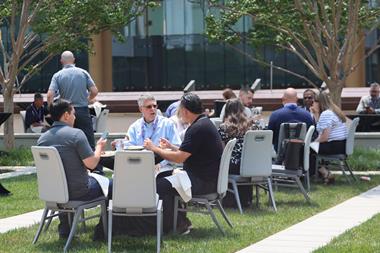
Maruti strike hits supply chain
The build up of inventory at parts suppliers to Maruti Suzuki’s Manesar plant in Haryana northern India, where a 2,000-strong workers’ strike is now in its second week, is reported to have shut down around 250 facilities in the Gurgaon-Manesar industrial belt, India's biggest automotive hub. Vendors are reporting they no longer have space to store the components that are not being delivered because of the shutdown and are being forced to stop production at their own facilities.
Members of the All India Trade Union Congress (AITUC), along with other unions, are supporting the ongoing strike action, which was taken following demands for the recognition of a new labour union called the Maruti Suzuki Employees Union (MSEU), formed exclusively by workers and contract labourers, to negotiate better working conditions. Maruti Suzuki rejected the demands and said it was unwilling to recognize the new union. It declared the strike illegal, subsequently sacking 11 workers involved in the actions.
Protesting workers now say that they would be willing to end strike action if all of the 11 sacked workers were given back their jobs. Maruti Suzuki's management agreed to reinstate five of them but negotiations between the workers and the management have stalled.
On Tuesday 50,000 workers in the Gurgaon-Manesar region observed a two-hour shutdown to express solidarity with the Maruti Suzuki workers.
That action is expected to spread if the Manesar situation is not resolved within the next couple of days and could include workers at other carmakers in the region.
Earlier this week, India’s largest vehicle maker said it was unwilling to recognise a new workers union formed at the Manesar plant
Maruti Suzuki’s losses are said to have reached more than $80m so far with production loss of around 10,200 vehicles.
The latest strike follows action taken in March by more than 700 workers at GM’s plant in the western state of Gujarat who went on a strike for more than a month resulting in a production loss of about 2,500 units.
Toyota VLC to add wind turbines
Toyota’s Vehicle Logistics Centre (VLC) in Zeebrugge, Belgium is adding two wind turbines designed to generate energy for the facility that will also feed into country’s national grid. The installation of the turbines is expected to be complete by early 2013 following approval for construction from the port of Zeebrugge.
The development is a joint project with Evelop Belgium will contribute towards the Port Authority’s broader wind energy plan at the port and means Toyota will be among the first operators at the inner port to support the initiative. Each wind turbine will be capable of generating 3 MW of electricity, and a combined annual capacity of 17.1 GWh.
Wind energy provider, Evelop Belgium – part of the Dutch energy group Eneco, will construct and maintain both wind turbines at Toyota’s Zeebrugge VLC.
Koen Vandersteegen, regional manager for Vehicle Logistics at Toyota Motor Europe, said: “This project is part of our long-term aim to ensure sustainability of our operations. As an automotive company, we remain committed to contributing positively to the environment. The wind turbines are only the most recent in a series of environmental projects we have implemented to improve our environmental performance.”
Today’s announcement comes just over a year after the inauguration of 80,000 m² of solar panels at Toyota Parts Centre Europe in Diest, Belgium.
Starting operations in January 2001, the Zeebrugge VLC currently occupies 460,000 m², following an expansion project in 2003. The hub is one of nine Toyota logistics centres in Europe to be awarded the ISO 14001 certification for environmental management. The Zeebrugge VLC reached a milestone in March when it distributed the 3-millionth vehicle after its first decade of operations.
Keiper award for DHL Supply Chain
DHL Supply Chain has been recognised with a Supply Chain Capability award for its delivery of metal seat structures for Keiper, the German-based manufacturer of seat components and structures.
The award, presented by Keiper, recognised DHL’s efforts in managing additional activities within Keiper’s logistics operations from Birmngham facility in the UK to car manufacturers on what it terms “a case by case basis”.
The initial contract between the two organisations started in 2007 and was extended for a further three years in September 2010. Over that period DHL has expanded its role from solely managing the offsite warehousing requirements to undertaking receipt, checking and linefeed management of metal seat structures at the manufacturer’s factory.
DHL was cited for its smooth and controlled implementation of the contract extension activities and its proactive approach to continuous improvement while delivering cost saving initiatives.





































